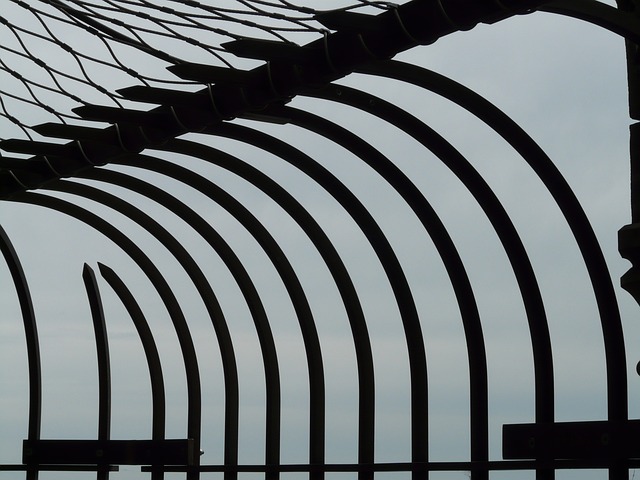The following essay was written by Mitchell Robinson and is cross-posted on his most-excellent blog at MitchellRobinson.net. Robinson is associate professor and chair of music education, and coordinator of the music student teaching program at Michigan State University. Follow Mitchell on Twitter at @mrobmsu. His essay is reposted here with permission.
Enjoy.

A new report from the Justice Department recommends the suspension of contracts for private prisons, effective immediately. In explaining the justification for this decision, Deputy Attorney General Sally Yates concluded that “the facilities are both less safe and less effective at providing correctional services than those run by the government.”
Teachers and those who have observed the impact of the corporate education reform agenda on public education over the last decade or so may notice some striking similarities between the findings of this Justice Department report and the explosion of the charter school industry in our country. As with the private prison scenario, the explosion of charter schools in the last decade has created parallel school systems–both allegedly public, but fighting for limited resources, and competing on an uneven playing field.
As my friend, Steven Singer, says: “In Brown vs. Board of Education, the U.S. Supreme Court ruled that it is unconstitutional to have ‘separate but equal’ schools, because when they’re separate, they’re rarely equal. Having two parallel systems of education makes it too easy to provide more resources to some kids and less to others.”
Initially proposed in the 1970s as a “laboratory in innovation” for pedagogical practices, and even embraced by AFT President Albert Shanker in 1988, charter schools were intended to function as incubators for innovative teaching techniques, strategies and policies.
Today, the experiment has been co-opted in many states by “for-profit” charter school management companies, such as K12.com, which was supported by the investments of convicted felon Michael Milken. These for-profit networks are characterized by schools staffed with uncertified, lowly-paid, alternatively-prepared short-term faculty, many of whom are ill-equipped to handle the duties of teaching. These teachers are expected to deliver scripted lessons from canned curriculums, and follow a “teach to the test” approach controlled by “no-excuses” behavior management strategies that result in a joyless educational experience marked by high rates of student suspension, especially among students of color. It is little wonder that many of these charter schools, and their hi-tech cousins, so-called “virtual charter schools,” are referred to as “drop-out factories.”
Consider the following chilling parallels between charters and private prisons:
- Private prisons house 12% of inmates nationally
- Charter schools enroll 6% of students nationally
- Private prisons are not locally managed or controlled
- Charter schools are not locally managed or controlled
- Private prisons do not provide the same level of correctional services, programs and resources as government-managed correctional facilities
- Charter schools do not provide the same level of educational services, programs and resources (i.e., special education, music, art, library, social workers, school psychologists, school nurses) as public schools
- Private prisons are not subject to the same level or degree of regulation and oversight as government correctional facilities
- Charter schools are not subject to the same level or degree of regulation and oversight as public schools
- Privately contracted prisons reported more incidents of inmate contraband, higher rates of assaults and more uses of force than facilities run by the Federal Bureau of Prisons
- Charter schools, like Success Academy and KIPP, have been reported as having more incidents of student suspensions, higher rates of student misbehavior due to draconian behavior policies and expectations, and troubling incidents of teacher abuse than the public schools in their communities
In light of their investigation, the federal Justice Department has now determined that their experiment in the use of private prisons has been a dismal, dangerous failure, and is taking immediate steps to correct the situation. Not surprisingly, the contractors running these prisons are pushing back against the decision: “Scott Marquardt, president of Management and Training Corporation, wrote that comparing Bureau of Prisons facilities to privately operated ones was ‘comparing apples and oranges.’ He generally disputed the inspector general’s report.”
Mr. Marquardt’s comments echo the response from Success Academy CEO Eva Moskowitz in February of 2016, after allegations of teacher abuse at one of her schools in NYC (captured on video)–rather than taking responsibility for the incident or suggesting possible solutions to make sure similar incidents would not happen again, Ms. Moskowitz defended the teacher and cast aspersions on the motivations of the assistant teacher who had recorded the video of the event: “This video proves utterly nothing but that a teacher in one of our 700 classrooms, on a day more than a year ago, got frustrated and spoke harshly to her students.”
Criminal justice experts are applauding the Justice Department’s decision to suspend their use of private prisons. Marc Maurer, executive director of The Sentencing Project, calls the decision a “major milestone in the movement away from mass incarceration…It has been a stain on our democracy to permit profit-making entities to be handed the responsibility of making determinations of individual liberty,” said Mauer. “Today’s action moves us closer to a moment when government can once again assume this important responsibility.”
Teachers, parents, and supporters of public education can only hope that a corresponding statement is in the future for our profession, and that our national “experiment” in diverting public funds to private schools is coming to a similar, and much needed, end.
[CC image credit: Hans | Pixabay]



